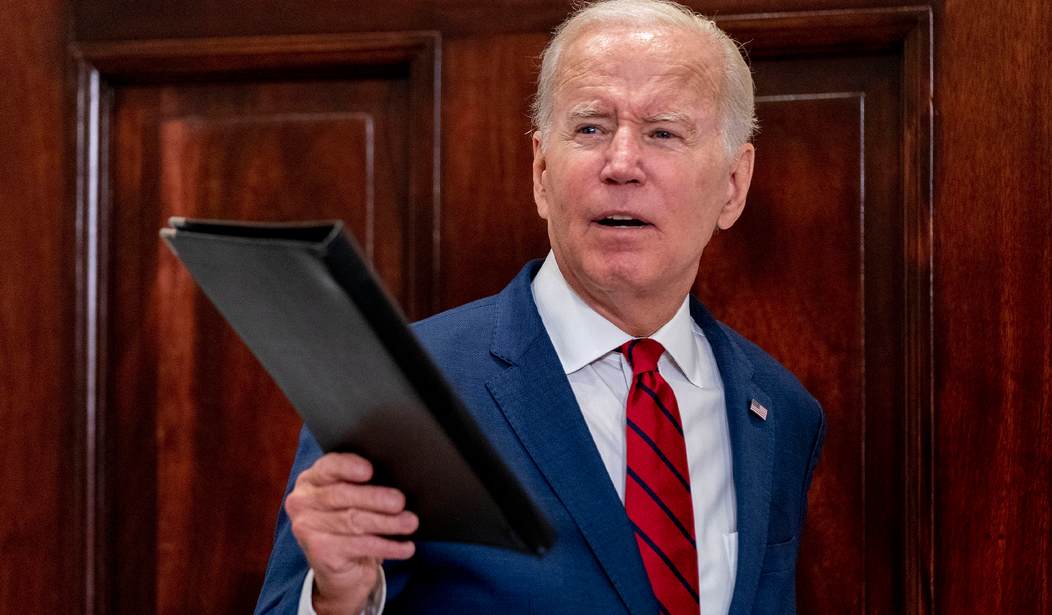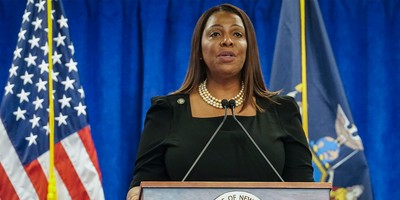What could possibly go wrong in giving the perfectly apolitical Department of Justice more power over elections?
A few too many one-offs, anomalies, and more than a couple of bad apples are enough to prompt even the most apt to provide the benefit-of-the-doubt to suspect the department has been politicized.
So it’s not very encouraging that the Biden administration’s Justice Department has made voting and elections a top priority, as detailed in my new book “The Myth of Voter Suppression.”
Thus far in 2022, an FBI SWAT team arrested a pro-life speaker at his home, raided the home of a former president, expanded its net for extremism to include concerned parents at school board meetings, all while an FBI whistleblower says the bureau ran interference to protect Hunter Biden.
Such anomalies and one-offs–that tend to always lean in one direction–perhaps shouldn’t raise concerns about the department’s expanding role in American democracy. On Oct. 4, Justice Department officials held a virtual briefing with 300 election officials and workers across the country, primarily about grant funding and physical security of voting sites. That would be entirely appropriate, though one is left to wonder given the Justice Department has too often shown its partisan stripes.
President Joe Biden signed a March 2021 executive order pushing an all-of-government approach to expanding voter turnout, largely based on recommendations from Demos, a liberal think tank. Don’t forget that Biden already set the predicate earlier this year for probing outcomes his party doesn’t like when he declared the election “could easily be illegitimate.”
In late 2020, a Demos policy brief called for the incoming Biden-Harris administration to use executive action to “strengthen Department of Justice’s enforcement of and guidance on voting rights statutes” and “pursue aggressive civil and criminal enforcement of federal voting rights protections.”
Recommended
The Biden Justice Department obliged, filing lawsuits against the states of Arizona, Georgia, and Texas over their election integrity measures in those states.
Biden further appointed top Justice Department officials with a long record of opposing any voter ID laws and state laws that promoted accurate voting lists.
One is Vanita Gupta, the associate attorney general.
Gupta returned to the Department of Justice after running the civil rights division during the Obama administration, which included overseeing the 2015 lawsuit to try to stop North Carolina’s voter ID law.
Gupta is a former CEO of the Leadership Conference on Civil and Human Rights and was previously a lawyer with the NAACP Legal Defense and Education Fund, as well as a lawyer with the American Civil Liberties Union.
Biden also named Kristen Clarke as the assistant attorney general to lead the Civil Rights Division that oversees the DOJ’s Voting Section.
Clarke was previously the president of the Lawyers’ Committee for Civil Rights Under Law and worked for the New York attorney general’s office and the NAACP Legal Defense and Education Fund.
In the face of a bona fide open-and-shut case of voter intimidation, Clarke, as a private lawyer, lobbied the Justice Department to drop its case against the far-left New Black Panther Party, which was seen on video intimidating voters at a Pennsylvania polling place during the 2008 election. The intimidation was perceived as benefitting Democrats, so it apparently didn’t matter. The Obama Justice Department complied with the push.
Clarke further led a lawsuit to stop the then-Georgia Secretary of State Brian Kemp from enforcing election integrity policies.
In July 2021, the Department of Justice issued guidance on federal statutes regarding voting methods—including mail-in voting—and warnings on conducting post-election audits, which Democrats staunchly opposed.
In June 2021, the Justice Department sued Georgia over its voting law regarding the use of voter ID for absentee ballots. The Biden DOJ’s complaint in federal court contends that provisions of the law were adopted to deny or abridge the right to vote based on race. The following November, the Justice Department filed a lawsuit against Texas over what it claimed were “restrictive voting procedures.” The Justice Department also sued in July 2022 to claim Arizona election reforms suppressed voting.
The lawsuits continue even void of evidence. As “The Myth of Voter Suppression” points out, the 2022 primary elections, the first test of the 2021 state election reforms, show the laws didn’t suppress anything.
Georgia had a 168% increase from the off-year primary of 2018. In Texas, turnout was 17.7% in 2022, about 3 million votes compared to 17.2% in the 2018 primary. Arizona had a record primary turnout in 2022 of 35.12%, or 1.4 million ballots cast, compared to the 33.3% turnout in 2018, with 1.2 million ballots casts.
In response to Biden’s executive order, the Justice Department announced in May 2022 that it would provide “educational materials related to voter registration and voting” and “facilitate voter registration, for all eligible individuals in the custody of the Federal Bureau of Prisons.” Convicted felons have generally been a reliable Democrat voting bloc.
With just a little over a month before Election Day, it will be interesting to see how political the Justice Department will be before and after the actual voting.
Fred Lucas is the author of “The Myth of Voter Suppression: The Left’s Assault on Clean Elections.” He is the manager of the Investigative Reporting Project at The Daily Signal.

























Join the conversation as a VIP Member